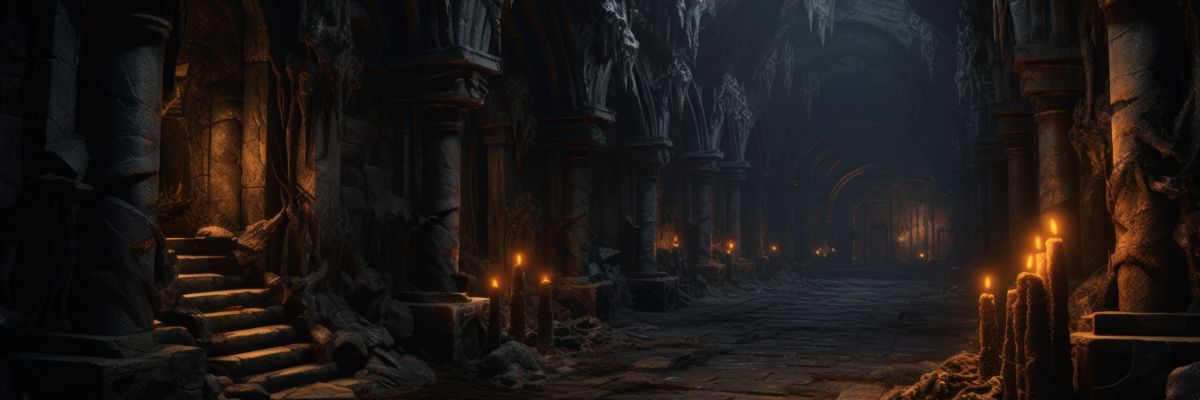
Audio only:
In this episode, Trent examines what John MacArthur said about the history of the Catholic church during an interview with Ben Shapiro.
Transcript:
Welcome to The Counsel of Trent podcast, a production of Catholic Answers.
Trent Horn:
Hey, everyone. In today’s episode of The Counsel of Trent podcast. Oh, by the way, I’m your host, Catholic Answers apologist Trent Horn. I want to reflect on an older episode from Ben Shapiro’s podcast where he interviewed the Protestant apologist John MacArthur. MacArthur made a lot of claims in that interview. But one part of it that really stuck out to me were his historical swipes against the Catholic Church. That’s what I want to talk about today.
Before I do that, though, just want to let you know I’m getting over a cold, so that’s why I might sound a little off in this episode. If you could hit the subscribe button, I would really appreciate it. It helps other channels to get to know us if our subscriber count grows. Maybe one day get on Ben Shapiro’s Sunday Special myself. Who knows? Anything you could do to help out would be appreciated.
At one point in the interview, Shapiro asked MacArthur, “Do you think the Enlightenment was a good thing or a bad thing?” In response, MacArthur gave a rambling answer that focused instead on the Protestant Reformation and the Catholic Church. In the process, MacArthur shared typical anti-Catholic historical myths. He began by saying, “We need to look at the big picture and remember the following.”
John MacArthur:
When Christianity comes and the church is founded, the church flourishes in the 1st century. By the time you get to the 3rd century and you get Constantine, you have organizational Christianity, institutional Christianity. They decide that everybody’s going to be a Christian, so they baptize all the babies. Everybody is a Christian. You have essentially state-sponsored Christianity.
Trent Horn:
This is a pretty typical argument. Many Protestants like to claim that the 4th-century pagan converts to the church caused a great apostasy. They all adjoined the church for political expediency. They brought in their pagan beliefs that ended up contaminating the church with so-called manmade doctrines that contradicted God’s revelation. This led to a repression of the pure Gospel for centuries until the Reformation, I guess. Not only does this tired claim lack a basis in fact, it’s an assertion that can be deployed against Protestantism.
During the Reformation, most Protestant denominations were state-sponsored churches. In many cases, it was politically expedient for a person to become a Calvinist in Geneva or an Anglican in England. But mere association with a secular government does not disprove a church’s teachings. Whether Catholic or Protestant, the teachings need to be evaluated on their own merits. MacArthur is also wrong about the historical origins of infant baptism. In the 3rd century, 150 years before Christianity became the religion of the Roman Empire, origin said the church has received the tradition from the apostles to give baptism even to little children. Even the Protestant theologian R. C. Sproul says that by the middle of the 2nd century, infant baptism “is spoken of as the universal practice of the church. It appears to be occurring everywhere.”
John MacArthur:
Essentially, state-sponsored Christianity. That launches a thousand years of the Dark Ages, where religion and relationship to God is not personal. The church… It’s a surrogate for God. You connect to the church. You don’t connect by faith. You don’t connect in your heart by loving the Lord. Christianity… That was dead cold, and the Gospel was lost. Truth was lost.
Trent Horn:
I can’t stand the term Dark Ages. It’s politically loaded and imprecise. MacArthur doesn’t even use it in its common academic sense to refer to the centuries following the fall of the Roman Empire and the Germanic barbarian invasions in Europe. He imagines that period extending over a millennium to include most of pre-Reformation Christendom.
Traditionally, of course, Christians believed the time before the 5th century was dark because the world was shrouded in pagan darkness. For the next 10 centuries, the light of Christ spread all over the world because of the dreaded institutions the Catholic Church provided, like the university or abbeys and monasteries.
Even before the period of Christendom, during the Patristic age, Christians encountered God through the church he gave us. Saint Cyprian of Carthage wrote, in the early 3rd century, “You cannot have God for your father if you do not have the church for your mother.” Saint Ignatius of Antioch exhorted believers at the beginning of the 2nd century to “follow the bishop even as Jesus Christ does the Father.” But MacArthur claims that this age of church authority was the result of the church’s suppression of Bible reading.
John MacArthur:
Christianity… That was dead cold, and the Gospel was lost. Truth was lost. But it had massive power over people. What kept that power was… Don’t put the Bible in their language. Don’t let them read it. The church is the only interpreter of the Bible. They can’t interpret scripture. If anybody tried to do the interpretation on their own, they would be murdered. We know the story of William Tyndale. He translates the Bible into English. They chase him all over the place until they finally kill him. What was his crime? Translating the Bible into the language of the people so that every “plowboy” in England could read the scripture. That is a crime that brings down that false system.
Trent Horn:
In reality, Catholics had been allowed to publish vernacular translations of the Bible for centuries before Tyndale published his English New Testament in 1534. Two late medieval examples include the 1466 German Mentelin Bible, Guyart Moulins’ 1297 French Bible, and the Peshitta, a 5th-century Syriac Bible that had been used in the Eastern Church, while the Western Church, at that time, was blessed with St. Jerome’s Latin Vulgate. Even though it was in Latin, that was a vernacular translation because people read and understood Latin. It was read aloud in churches and could be understood by the masses.
The church did not oppose the idea of vernacular Bible translations as such. It opposed the idea of private individuals making their own translations of the Bible on their own authority because they might mistranslate the word of God and lead people away from the faith. In fact, the church still prohibits this. Section 825 of the Code of Canon Law requires permission to create a formal Bible translation.
The church took seriously its duty to protect the integrity of sacred scripture, which is something that any Protestant who loves the Bible should appreciate since most Protestants wouldn’t tolerate a New World Translation of the Bible that Jehovah’s Witnesses use to be a part of their Bible studies.
The church rejected Tyndale’s translation because he rendered words in a way that undermined church teaching, like translating “ecclesia” as “congregation” instead of “church.” The notes and prologues in his Bible also contained attacks on things like the papacy. The Protestant authors David Price and Charles Ryrie say of Tyndale’s translation: “Unquestionably, anti-Catholic outbursts are sufficiently numerous to make a strong impression on any reader.”
It was the state that later executed Tyndale for his heresies that threatened to undermine its authority. The church only disciplined Tyndale by publicly removing his priestly vestments. Heresy, at that time in history, was considered a crime against the public order, which led to executions of both Protestants and Catholics throughout the Reformation.
The Catholic author Matthew A.C. Newsome writes the following, “Ultimately, it was the secular authorities that proved to be the end for Tyndale. He was arrested and tried, and sentenced to die in the court of the Holy Roman Emperor in 1536. His translation of the Bible was heretical because it contained heretical ideas, not because the act of translation was heretical in and of itself. In fact, the Catholic Church would produce a translation of the Bible into English a few years later, the Douay-Rheims version, whose New Testament was released in 1582 and whose Old Testament was released in 1609.
There’s more I could say about this interview, especially about MacArthur’s oversimplification of the relationship between the growth of industry and Protestant countries versus Catholic countries. But MacArthur’s answer to Shapiro about the Enlightenment… I want to focus on that because he says that, basically, a personal relationship with God is the ideal mankind should aim for and that this ideal was lost in the early Catholic Church, recaptured again during the Reformation, and then lost again during the Enlightenment.
But it’s a complete falsehood that Christians had no personal relationship with God until the Reformation. Has MacArthur not read Saint Augustine’s confessions or the writings of the mystics and the saints? MacArthur is right about the importance of having a personal relationship with God. He’s just mistaken in thinking that this is mutually exclusive with receiving the sacraments and having a hierarchical institutional church. He’s also mistaken in thinking that a personal relationship by itself guarantees salvation.
A Christian could claim that they have a personal relationship with God but radically misunderstand God’s nature. They might not even be a Christian, like a Mormon who denies the Trinity, or they might have a personal relationship with God but dramatically misunderstand how God gives us grace through infant baptism, as MacArthur misunderstands, or misunderstand God’s commands about morality or sexuality. The Bible even says that there are passages in it that are confusing, that people twist to their own destruction, 2 Peter 3:16. That’s why it would make sense that God would give us the church, the pillar and foundation of truth, as 1 Timothy 3:15 says, to lead us into a personal relationship with Him.
All right. Well, thank you guys so much for watching. I hope that you all have a very blessed day.
If you like today’s episode, become a premium subscriber at our Patreon page and get access to member-only content. For more information, visit trenthornpodcast.com.



